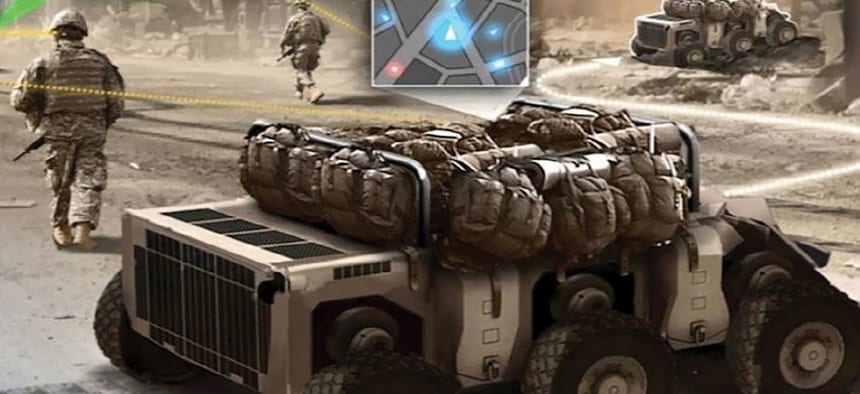Soldiers Don’t Trust Robot Battle Buddies. Can Virtual Training Fix That? – By Patrick Tucker (Defense One) / Nov 30 2020
Allowing soldiers to train their robot wingmen in game environments could be the key to human-machine teaming.
You might think that troops would be eager to incorporate robots and automata into operations, since military robots are intended to save soldiers, airmen, etc., from the “dull, dirty, dangerous” jobs that operators are called on to perform in combat settings. But a new survey from the U.S. Air Force’s Journal of Indo-Pacific Affairs shows that frontline military personnel are actually more apprehensive than their commanders about it.
The paper, based on a survey of 800 officer cadets and midshipmen at the Australian Defence Force Academy, showed that “a significant majority would be unwilling to deploy alongside fully autonomous” lethal autonomous weapons systems, or LAWS, and that “the perceived safety, accuracy, and reliability of the autonomous system and that the potential to reduce harm to civilians, allied forces, and ADF personnel are the most persuasive benefits,” as opposed to other factors, such as cost savings, etc.
This might be a problem for a Pentagon eager to begin incorporating autonomous systems into exercises and operations. Military leaders have been pushing new concepts of operation based around human-machine teaming for years now, with the goal of augmenting soldiers’ ability to carry things, sense their environment, and respond to threats with help from ground robots, small tactical drones, and even armed robots.



















